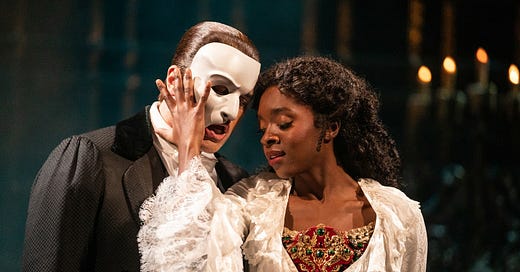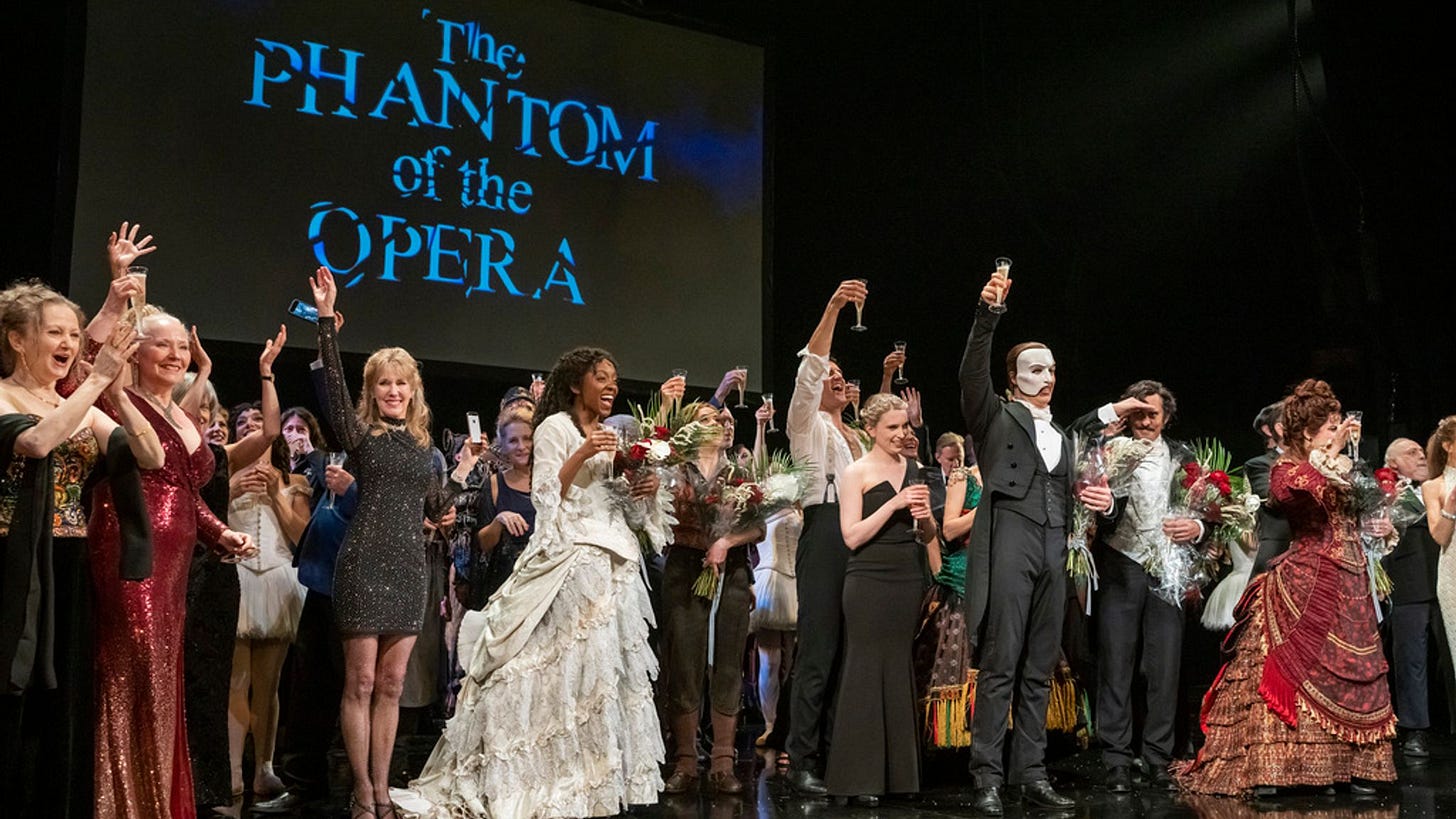35 years ago Broadway was in the middle of a British Invasion. Theatre owners literally tripped over each other to get hold of the next Cam or Andy show and the public travelled from all over the country to enjoy spectacular spectaculars, but despite this commercial success the New York critics were kind of sniffy about the whole thing.
Frank Rich, wrote in the New York Times that Phantom of the Opera was a ‘triumph of merchandising’ and ‘as extravagant of imagination as of budget’ Talk about pearl clutching! Rich went on to make unflattering comparisons with Sondheim and Hammerstein and generally gave Phantom a hard time - although he also said the show would be difficult not to enjoy.
His comments were completely ignored by the ticket buying public who gave the show a multi -million dollar advance and the Tonys Committee who gave Phantom 10 nominations and 7 awards including Best Musical.
The year 1988 was peak '80s for British shows. The top 5 grossing musicals on Broadway had all originated in London and three had been written by Lloyd-Webber. In certain Manhattan salons a backlash against the ‘British Mega Musical’ was in full flight. 'How dare the Brits come over here with all their big over blown shows?’ Quietly ignoring the fact that these shows were entertaining millions, making billions and employing thousands of creatives and performers - Phantom is estimated to have employed close to 7,000 Equity members during its 36 year run.
The Broadway musical is a thing of beauty. It is refined, skilfully crafted and meticulously structured, but times change and the new British mega shows did not follow the classic structure.
So why were these London launched shows so successful? The ‘80s was the decade of excess, of endless trips by Concorde and of being seen to make a ton of money. What Broadway’s cultural commentators had failed to identify was this cultural shift taking place in the background and that the Broadway musical was getting left behind. The best musical theatre is a reflection of the time and place it is living in and the new British shows were big, bold and spectacular just like the decade.
When Phantom opened on Broadway the other ‘Great American Musicals’ doing well at the box office were A Chorus Line (opened 1975), Sondheim’s incredible Into The Woods and a trio of jukebox musicals based on 1940s material: Anything Goes, Ain’t Misbehavin’ and 42nd Street.
It felt like Broadway and its writers (except for Sondheim) were in shock.
No matter how hard it was opposed, the 80s mega musical marched right on into the 90s, before spawning and influencing a whole new genre and generation.
The British mega musical generated spectacle by fully integrating tech and creativity and pairing it with the vision of designers like Maria Bjornson and principally John Napier. This transformed shows into theatrical experiences, demonstrations of theatricality with the visual elements matched by hugely popular scores and enormous arrangements.
Phantom of the Opera was a product of its time and the first of its kind. It took the visually spectacular appeal of Cats and Starlight Express, paired it with the 19th Century setting and semi-operatic nature of Les Miserables and added an intense love story to create a show that not only made a billion dollars but has influenced production styles ever since. Phantom begat Miss Saigon (a flying helicopter), Sunset Boulevard (a flying mansion!), Wicked (a flying woman!) And even The Lion King (flying birds!)
The fact is no show can run forever. There have been upheavals in the world and the result is a cultural shift. In 2019 Hamilton grossed over $159million on Broadway - over 3 times what Phantom earned. The times had changed. The Phantom’s proposition was looking dated compared to the plethora of newer and, frankly younger, shows arriving on Broadway. Aside from Lin-Manuel Miranda’s juggernaut, Phantom was now competing with Dear Evan Hansen, Moulin Rouge and Mean Girls together with a Disney trifecta and the ever more respected Wicked.
By 2023 the future was clear: Six, &Juliet, Hamilton and Moulin Rouge are the hot tickets. They are the groundbreakers today in the way that Phantom of the Opera was in 1988.
But behind this there is another cultural shift underway. Musically and sonically shows have caught up to the Billboard Hot 100. The four shows I mentioned all have scores that are either straight out of pop music or sound like it. Additionally, we saw in the recent Olivier Awards that there is a move towards smaller shows with all the best musical nominees being smaller or midscale productions - times change and so does public taste.
None of this means that Phantom is not a great show. It is a wonderful show, a show full of fantasy and vision. I’ve seen Phantom of the Opera in London, Manchester and even Orlando! It is a show that features opera, ballet and top 10 pop hits and it is a show that has brought millions to theatres around the world.
And now after 35 years, 13,981 performances, 9/11, recessions and COVID the famous chandelier will rise no more over the Majestic Theatre in New York. The Phantom of the Opera is the last original ‘80s mega musical to close on Broadway. It should be celebrated as a glorious, romantic and ridiculous riot that has employed thousands and inspired millions.
“Perhaps we may frighten away the ghosts of so many years ago with a little illumination …gentlemen” DAAAAAA Da-Da-Da DAAAAA!






